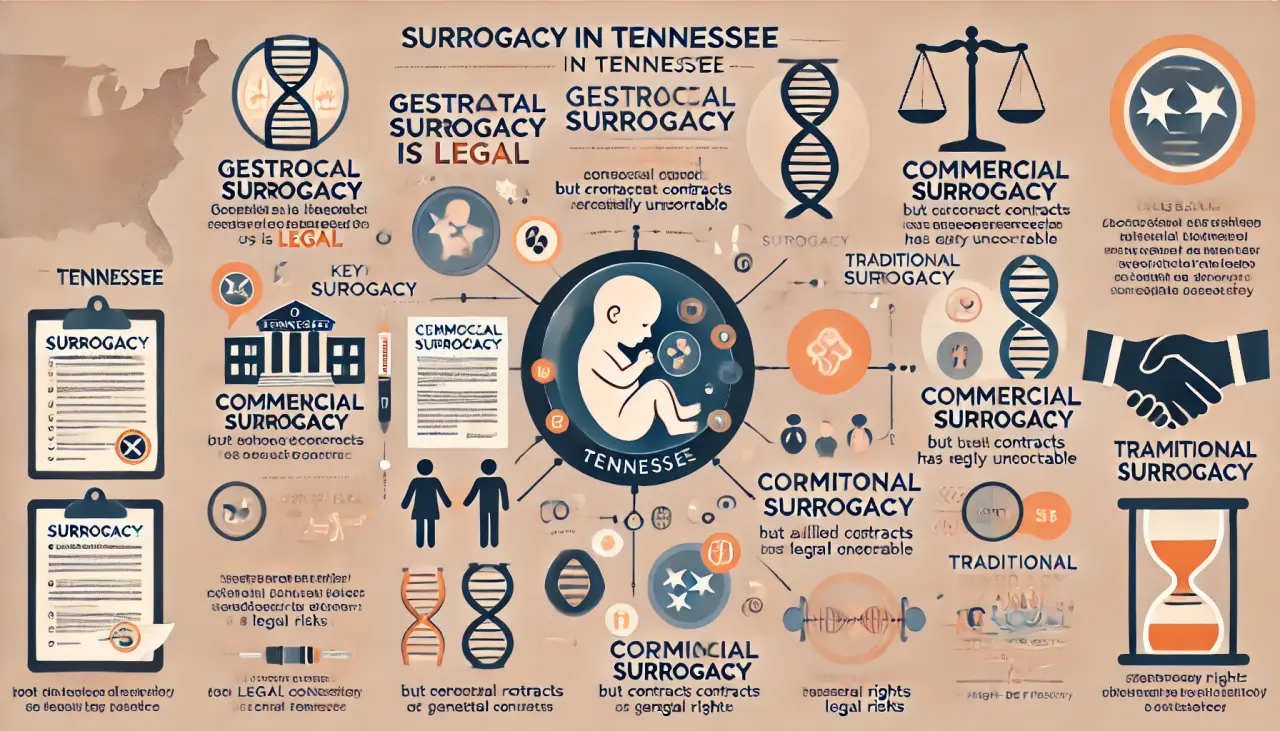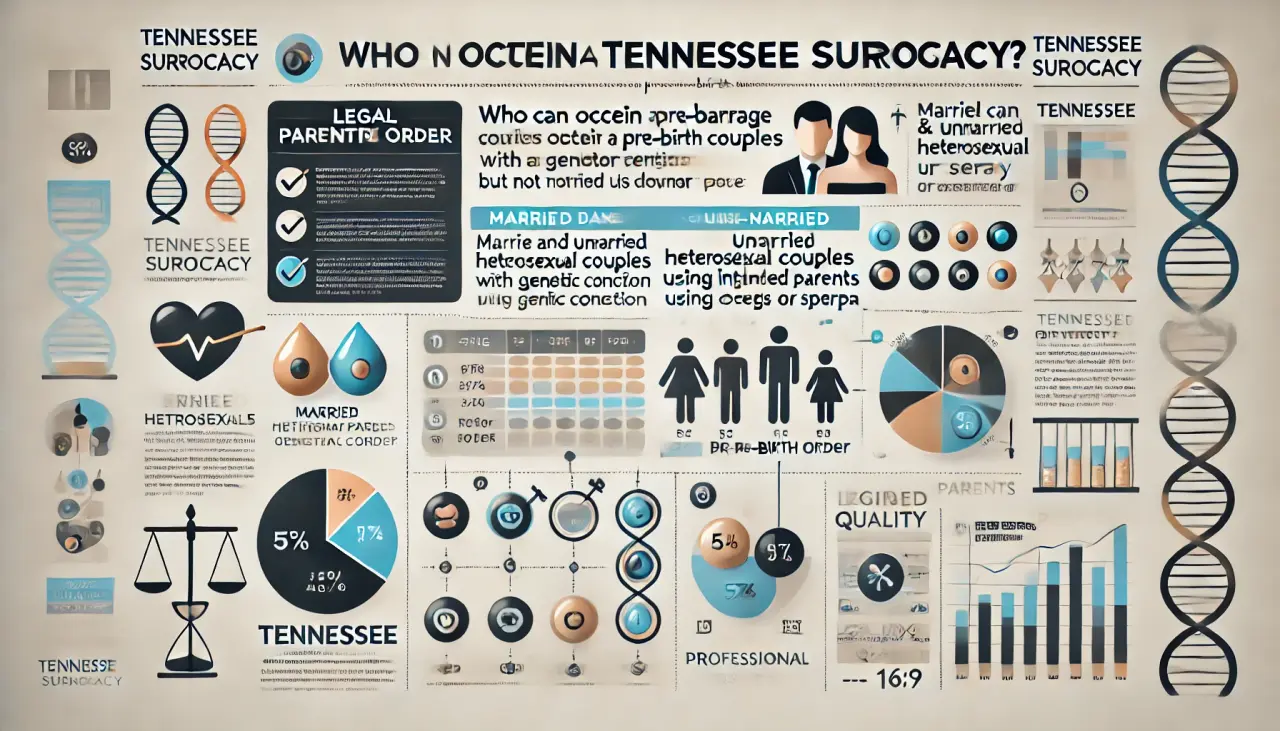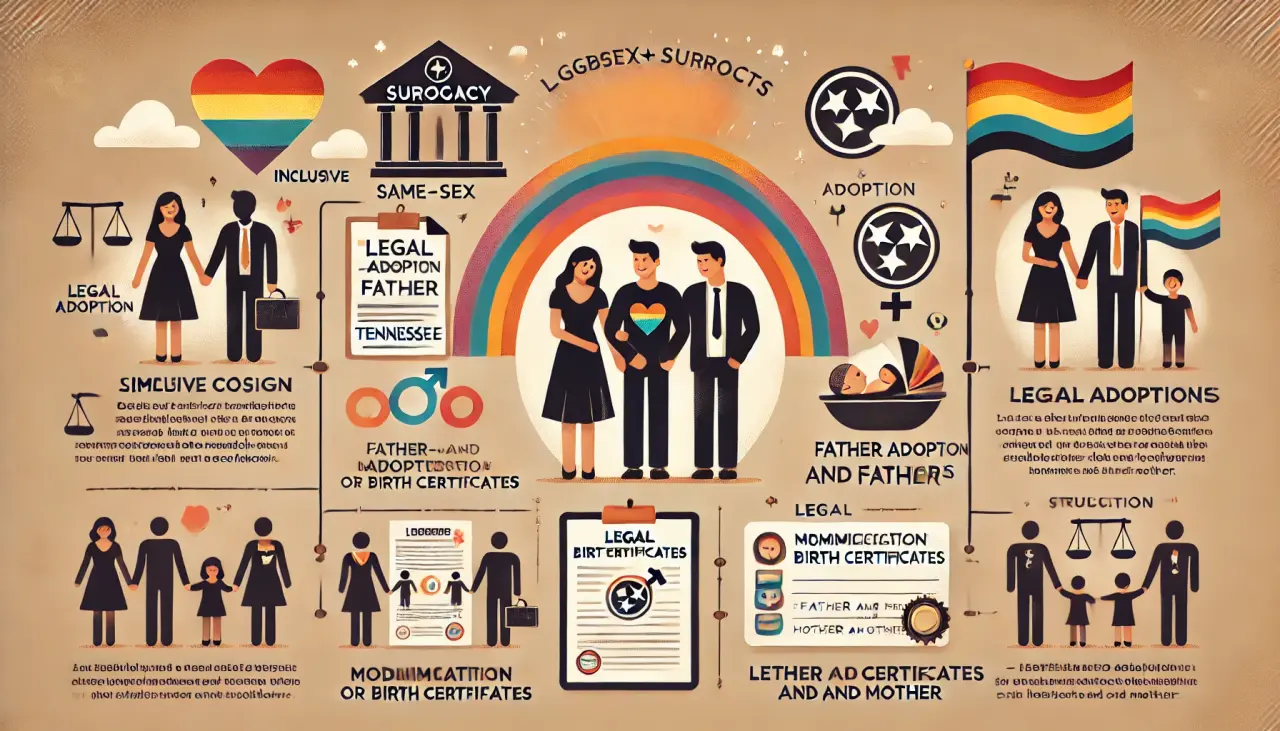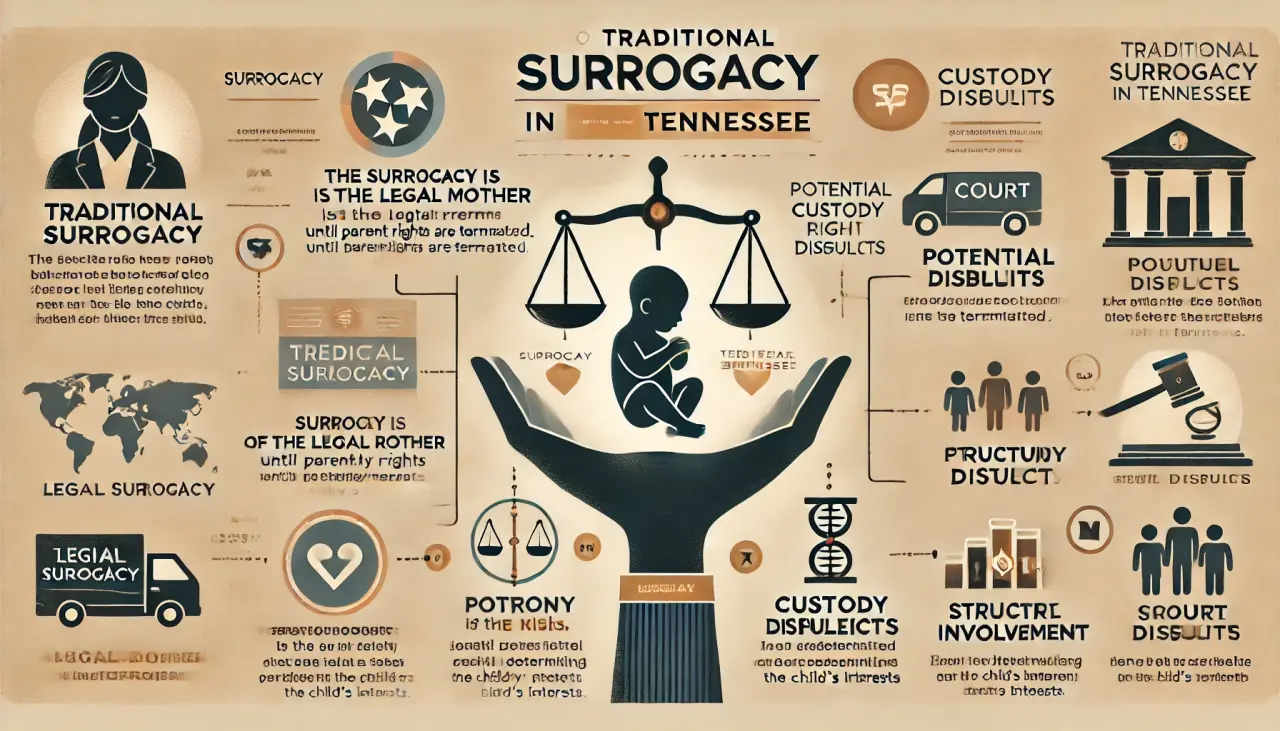
Surrogacy in Tennessee: Laws, Legal Parentage, and LGBTQ+ Surrogacy Rights
Surrogacy in Tennessee is legal but not explicitly regulated by state statutes. The state allows gestational surrogacy, but legal parentage depends on genetic connection. While commercial surrogacy is allowed, there are specific legal issues in surrogacy that intended parents must navigate.
This guide will explore surrogacy laws in Tennessee, covering gestational and traditional surrogacy, surrogacy contracts, and the legal process for LGBTQ+ intended parents.

1. Is Surrogacy Legal in Tennessee?
Yes, gestational surrogacy is legal in Tennessee, but there are no specific laws governing surrogacy contracts. Courts have upheld surrogacy arrangements, but parental rights are not automatically granted to non-genetic intended parents.
Is Commercial Surrogacy Allowed in Tennessee?
✅ Yes. Commercial surrogacy is permitted, and surrogate compensation is negotiated in the surrogacy contract. However, these contracts are not explicitly enforceable under Tennessee law.
Is Traditional Surrogacy Legal in Tennessee?
✅ Yes, but complex. Traditional surrogacy (where the surrogate uses her own egg) is more legally challenging because the surrogate is the biological mother. Tennessee courts treat traditional surrogates as legal parents until their rights are formally terminated.
2. Pre-Birth Orders and Legal Parentage
In Tennessee, pre-birth orders are available only if at least one intended parent is genetically related to the child. If donor eggs or sperm are used, additional steps (such as adoption) are required.
Who Can Obtain a Pre-Birth Parentage Order?
- ✅ Married heterosexual couples using their own sperm and egg → Yes
- ✅ Unmarried heterosexual couples using their own sperm and egg → Yes
- ❌ Couples using a donor egg or sperm → No (Only the genetic parent is recognized)
- ❌ Same-sex couples using a donor egg or sperm → No (Only the biological father can obtain a pre-birth order)
- ✅ Single genetic parents → Yes
If neither intended parent is genetically related to the child, they cannot obtain a pre-birth order and must pursue post-birth adoption.

3. LGBTQ+ Surrogacy in Tennessee
Is Surrogacy for LGBTQ+ Couples Legal in Tennessee?
✅ Yes. LGBTQ+ couples have the same rights as heterosexual couples, but legal parentage may require additional legal steps.
How Are LGBTQ+ Parents Listed on Birth Certificates?
- Gay couples → “Father and Father”
- Lesbian couples → “Mother and Mother”
Tennessee allows modifications to birth certificates to reflect gender-neutral parentage. However, the non-genetic parent must complete an adoption to be legally recognized.
Can a Non-Biological Parent Complete a Second-Parent Adoption?
✅ Yes, but they must be legally married to the biological parent. Tennessee does not allow second-parent adoption for unmarried couples.

4. Surrogacy Contracts in Tennessee
Tennessee law does not explicitly regulate surrogacy contracts, but they are commonly used. Both intended parents and the surrogate must have separate legal representation to protect their rights.
What Should a Surrogacy Contract Include?
- Parental rights and responsibilities
- Surrogate compensation and expenses
- Medical decision-making rights
- Selective reduction and pregnancy termination terms
- Insurance and legal coverage
While courts may recognize surrogacy contracts, they are not automatically enforceable, especially in traditional surrogacy cases.
5. Egg, Sperm, and Embryo Donation in Tennessee
Tennessee law states that sperm donors have no parental rights, which applies to heterosexual and LGBTQ+ couples. However, there are no clear laws on egg and embryo donation, and parentage rights for intended parents using donor embryos must be established through adoption.
6. Parental Rights and Adoption in Tennessee
If a non-genetic intended parent (e.g., a parent using donor eggs or sperm) wants legal recognition, they must complete a post-birth adoption.
Who Needs to Complete an Adoption?
- Married heterosexual couples using donor eggs/sperm → ✅ Adoption required
- Same-sex couples (non-genetic parent) → ✅ Adoption required
- Single non-genetic parents → ✅ Adoption required
Step-parent adoptions are allowed for married couples, while unmarried couples cannot adopt each other’s child.
7. Timeline for Birth Certificates and Legal Parentage
How Long Does It Take to Obtain a Birth Certificate?
Tennessee uses an electronic birth record system, and birth certificates are typically issued within one week. In urgent cases, the process can be expedited.
Can Out-of-State Intended Parents Obtain a Tennessee Birth Certificate?
✅ Yes, but at least one intended parent must be genetically related.

8. Traditional Surrogacy: Legal Risks in Tennessee
Traditional surrogacy (where the surrogate is also the genetic mother) is more legally complicated. In In re: Baby (447 S.W.3d 807), the Tennessee Supreme Court ruled that traditional surrogates retain parental rights until legal termination.
This means:
- The surrogate cannot waive parental rights before birth.
- A custody dispute may arise if the surrogate changes her mind.
- Courts prioritize the child’s best interests in disputes.
Due to these legal risks, most surrogacy attorneys in Tennessee do not recommend traditional surrogacy.
9. Key Takeaways: Surrogacy in Tennessee
✅ Gestational surrogacy is legal, but parental rights depend on genetic connection.
✅ Commercial surrogacy is allowed, but contracts are not explicitly enforceable.
❌ Pre-birth orders are only available if one parent is genetically related.
✅ LGBTQ+ intended parents can pursue surrogacy, but second-parent adoption is required.
❌ Traditional surrogacy is legally risky, as the surrogate retains parental rights until adoption is finalized.
For intended parents considering surrogacy in Tennessee, consulting an experienced surrogacy attorney is essential to navigate legal complexities.